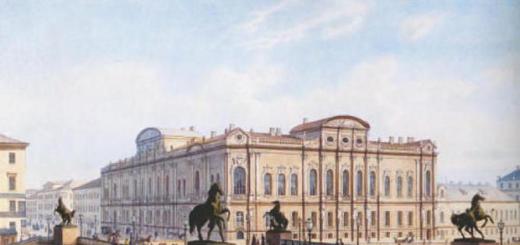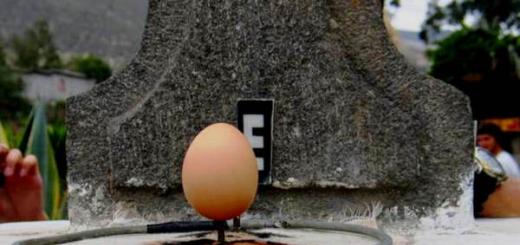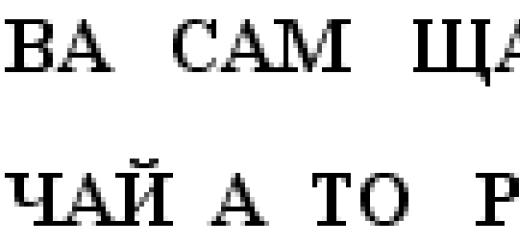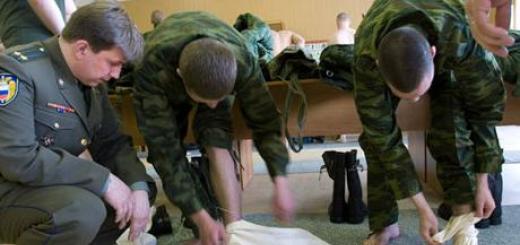Welcome to the Russian-Portuguese dictionary. Please write the word or phrase you want to check in the text box on the left.
Recent Changes
Glosbe is home to thousands of dictionaries. We provide not only dictionary Russian-Portuguese, but dictionaries for every existing pairs of languages - online and free. Visit the home page of our site to choose from the available languages.
Translation Memory
Glosbe dictionaries are unique. On Glosbe you can check not only translations into language Russian or Portuguese: we also provide examples of usage, by showing dozens of examples of translated sentences containing translated phrase. This is called "translation memory" and is very useful for translators. You can see not only the translation of a word, but also how it behaves in a sentence. Our translation memories come mostly from parallel corpora that have been made by humans. Such translation of sentences is a very useful addition to dictionaries.
Statistics
We currently have 125,937 translated phrases. We currently have 5729350 sentence translations
Cooperation
Help us in creating the largest Russian-Portuguese dictionary online. Just sign in and add a new translation. Glosbe is a unified project and anyone can add (or remove) translations. This makes our dictionary Russian Portuguese real, as it is created by native speakers who use the language every day. You can also be sure that any mistake in the dictionary will be corrected quickly, so you can rely on our data. If you find a bug or you can add new data, please do so. Thousands of people will be grateful for this.
You should know that Glosbe is not filled with words, but with ideas about what these words mean. Thanks to this, by adding one new translation, dozens of new translations are created! Help us develop Glosbe dictionaries and you will see how your knowledge helps people around the world.
Portuguese (Português, Língua Portuguesa) is a Romance language closely related to Galician and Spanish and is the official language of 250 million people in Portugal, Brazil, Mozambique, Angola, Guinea-Bissau, East Timur, Macau, Cape Verde and Sao Tome / Principe, as well as for some international organizations, including Mercosur, the Organization of Ibero-American States, the Union of South American Nations, the Organization of American States, the African Union and the European Union. Portuguese is a very international and growing language, and even if you only know a few words, it will be significant.
Steps
Part 1
Greetings-
Learn greetings related to the time of day. As in other languages, in Portuguese you can say hello in many ways, including mentioning the time of day at which the meeting took place:
- good morning bom dia( Boh-n dih-ah or Boh-n djih-ah in the Brazilian version) - literally translated as "good afternoon," but most often this phrase is used in the morning.
- Good afternoon: Boa tarde ( Boh-ah tahr-jia) - used in the afternoon, before dusk.
- Good evening / good night: Boa noite ( Boh-ah no-ee-tay) - used from dusk to dawn.
-
Learn to ask how things are going. After saying hello in Portuguese, it will not be superfluous to ask how your interlocutor is doing. The following phrases can be used for this purpose:
- How are you?: Como está? ( Coh-moh esh-tah? or Coh-moh es-tah? in Brazilian version)
- How are you?: Como vai? ("Coh-moh vye?" - n.v.
- How are you? (only in Brazilian version): E ai? ( E-aye(pronounced as one syllable)) - n.v.
-
Learn to answer this question yourself. If you ask a person about something, then there is every chance that you will be asked the same thing. How to answer? That's how:
- Good / very good: Bem / muito bem ( Baing / moo-ee-toh baing)
- Bad / very bad: Mal / muito mal ( mao / moo-ee-toh mao)
- More or less / so-so: Mais ou menos ( Ma-eece oh meh-nos)
- Me sham oh)
- Nice to meet you: Prazer em conhecê-lo/a ( Prazh-air eh con-yo-see-lo/la)
- Note that conhecê-lo/a can have different endings, namely o or a. Everything is simple here: communicate with a man - o, With a woman - a. In this article, you will see more than once examples of this.
Part 2
Basics of dialogue-
Learn to talk about the language. You are just starting to learn Portuguese, so communication will be ... not so easy for you. Don't worry, everyone goes through it. Use the following phrases to explain the situation:
- I don't speak Portuguese - Não falo Português - ( Nah-oom fah-looh poor-too-gess)
- I speak English: Falo Inglês ( Fah-looh inn-glesh)
- Do you speak English?: Fala inglês? ( Fah-lah inn-gless) - formal version (hereinafter f.v.)
- Do you speak English?: Você fala inglês? ( Voh-say fah-lah inn-gless) - present
- I don't understand: Não percebo ( Nah-oo pehr-say-boo)
- Could you repeat?: Pode repetir? ( Poh-day reh-peh-teer)
-
Learn the formulas of politeness. Learning how to be polite in Portuguese is very important for anyone who is learning the language - you don't want to come across as rude, even if by accident?! In order not to make a bad impression, do not forget to use the following phrases in a speech in a timely manner:
- Please: Por favor ( Pooh-r fah-voh-r)
- Thanks: Obrigado/a ( Oh-bree-gah-dooh/dah) - the masculine form should be used by men, and the feminine, respectively, by women.
- Please: De nada ( Dee nah-dah) - present
- Please: Não tem de quê ( Nah-oomm tah-eehm the queh) - f.v.
- Sorry: Desculpe( Desh-cool-pah)
-
Learn to ask other people questions (and answer.) This skill will serve you faithfully and, quite possibly, may even bring you new friends! To maintain a simple dialogue, use these phrases:
- What is your name?: Como o/a senhor/a se chama? ( coh-moh sen-your/-ah se shahm-ah) - f.v. Note that in the masculine gender, senhor does not have an "o" ending.
- What is your name?: Qual é o seu nome? ( Coh eh-oh seh-oh no-mee) - present
- My name is...: Me chamo [your name] ( Me sham oh)
- Where are you from?: De onde o/a senhor/a é? ( Djee own-djah oh/ah sen-your/ah eh)
- Where are you from?: De onde você é? ( Djee own-djah voh-say eh) - present
- I'm from...: Eu sou de [your city] ( Ee-oh so-oo djee)
- What's going on / what's the matter?: O que aconteceu? ( Oo key ah-cone-teh-see-oo)
-
Learn to ask for help. Alas, sometimes our plans fly down the drain, and we need to ask for help. And if you realize that you need to ask for help in Portuguese, then the following phrases will serve you faithfully:
- What time is it?: Que horas são? ( Queh o-rah-sh sah-oomm)
- I'm lost: Estou perdido ( Esh-toe per-dee-doo / Es-toe per-djee-doo(in the Brazilian version))
- Please, could you help me?: Pode ajudar-me, por favor? ( Po-deh azhu-dar-meh, por-fah-vor?)
- Help!: Socorro! ( Soh-coh-hoh!) - this is the phrase to use when you are in danger
Part 3
Work on vocabulary-
Learn to ask general questions. Questions are an important part of everyday communication, because they give us the opportunity to learn more about the world around us. Learn the words below so you can always ask a question:
- Who?: Quem? ( Cang?)
- What?: O que? ( Ooh kee?)
- When?: Quando? ( Quan doo?)
- Where?: Onde? ( Own djee?)
- Which one?: Qual? ( Quah-ooh?)
- Why?: Porqué? ( Poohr-queh)
- Because: Porque ( Poohr-queh)
- How much?: Quanto? ( Kwan-toh)
- How much does it cost?: Quanto custa? ( Kwan-toh coos-tah?)
-
Learn the words used to describe relationships between people. They will be useful to you:
- Father: Pai pa-ee)
- Mother: Mae ( ma-ee) - f.v.
- Mother: Mamae ( muh-ma-ee) - present
- Man: Homem ( O-men)
- Woman: Mulher ( Mooh-lyehr)
- Friend: Amigo/a ( Ah-mee-goh/gah)
- Girl (with whom the person has a relationship): Namorada ( Nah-mooh-rah-dah)
- Boyfriend (with whom the person has a relationship): Namorado ( Nah-mooh-rah-dooh)
-
Learn the phrases used to address people. In Portuguese it is common to use special phrases to address those who are older than you or in a higher social position. Of course, informal communication is devoid of this, but you should still remember this: Until you are asked to do so, do not address people simply by their first and last names.
- Master: Senhor ( Sen-your) - used with the pronoun "you".
- Mistress: Senhora ( Sen-your-ah) - used with the pronoun "you" when referring to a woman.
- Mistress: Senhorita ( Sen-your-ee-tah) - used when referring to a girl
- Lady / madam / ma'am: Dona ( Don-nah) - a formal address to women
- Doctor: Dotour/a ( Doo-tohr/-ah
- Professor: Professor/a ( pro-fess-or/-ah) is used when referring to people with relevant academic degrees.
-
Learn the names of animals. This can be surprisingly useful, especially if you find yourself in the rainforests of Brazil or Angola. Here is a short list:
- Dog: Cão ( Cah-oohm)
- Dog (only in Brazil): Cachorro ( Cah-sho-hoo)
- Cat: Gato ( Gah-tooh)
- Bird: Passaro ( Pah-sah-row)
- Fish: Peixe ( pay-shay)
- Monkey: Macaco ( Mah-cah-coh)
- Lizard: Lagarto ( Lah-gar-toh)
- Beetle: Percevejo ( Pair-sair-ve-zhoh)
- Spider: Aranha ( Ah-rah-nyah)
-
Learn the names of body parts. Without this, you yourself understand, nowhere, especially if you find yourself in a situation where you were injured (or you yourself were injured), and you need to explain to the doctor what hurts. So here's what you need to know:
- Head: Cabeça ( Cah-beh-sah)
- Arm: Braco ( Brah-so)
- Leg: Perna ( Pair-nah)
- Palm: Mão ( Mah-oohm")
- Foot: Pe ( Peh)
- Hand finger - Dedo - Deh-dooh
- Toe - Dedo (yes, the same) - you can say "Dedo do pé" ( Deh dooh dooh peh), which literally means "toe on the foot."
- Eyes: Olhos ( Ole-yus)
- Mouth: Boca ( Boh-cah)
- Nose: Nariz ( Nah-reese)
- Ears: Orelhas ( Oh-rel-yase)
-
Learn to describe problems with the body. Getting sick in another country is such a pleasure. It will be much easier and easier for you if you can at least explain to the doctor on your fingers what and where it hurts:
- It hurts me: Estou magoado ( Ees-toh mah-goo-ah-doo)
- My [body part] is broken: Meu [body part] está quebrado ( May-oh brah-so es-tah kay-brah-doh)
- I bleed: Eu estou sangrando ( Eh-oh ees-toh san-grand-oh)
- I feel bad: Me sinto mal ( Mee seen-toh ma-oo)
- I'm sick: Sinto-me doente ( Seen-toh-may doo-en-tee)
- I have a fever: Estou com febre ( Ees-toh cohn feb-ray)
- I have a cough: Estou com tosse ( Ees-toh cohn tohs-ay)
- I'm suffocating: Eu não posso respirar ( Eh-oh nah-oo po-so ray-spee-rar)
- Doctor!: Medico! ( Meh-jee-coh)
Learn to say hello. Perhaps the best way to start learning Portuguese is with greetings. Learn them and you'll be able to say hello and goodbye to native Portuguese speakers! Below are the most common examples:
Welcome to the Portuguese-Russian dictionary. Please write the word or phrase you want to check in the text box on the left.
Recent Changes
Glosbe is home to thousands of dictionaries. We provide not only dictionary Portuguese-Russian, but dictionaries for every existing pairs of languages - online and free. Visit the home page of our site to choose from the available languages.
Translation Memory
Glosbe dictionaries are unique. On Glosbe you can check not only translations into language Portuguese or Russian: we also provide examples of usage, by showing dozens of examples of translated sentences containing translated phrase. This is called "translation memory" and is very useful for translators. You can see not only the translation of a word, but also how it behaves in a sentence. Our translation memories come mostly from parallel corpora that have been made by humans. Such translation of sentences is a very useful addition to dictionaries.
Statistics
We currently have 124,356 translated phrases. We currently have 5729350 sentence translations
Cooperation
Help us in creating the largest Portuguese-Russian dictionary online. Just sign in and add a new translation. Glosbe is a unified project and anyone can add (or remove) translations. This makes our dictionary Portuguese Russian real, as it is created by native speakers who use the language every day. You can also be sure that any mistake in the dictionary will be corrected quickly, so you can rely on our data. If you find a bug or you can add new data, please do so. Thousands of people will be grateful for this.
You should know that Glosbe is not filled with words, but with ideas about what these words mean. Thanks to this, by adding one new translation, dozens of new translations are created! Help us develop Glosbe dictionaries and you will see how your knowledge helps people around the world.
The free online translator Transёr® will correctly translate words, phrases, sentences and small texts from any of the 54 foreign languages of the world presented on the site. The software implementation of the service is based on the most popular Microsoft Translator translation technology, so there are restrictions on text input up to 3000 characters. Transёr will help overcome the language barrier in communication between people and in communications between companies.Benefits of the Transёr translator
Our translator is developing
The Microsoft Translator development team works tirelessly to improve the quality of translated texts, optimize translation technologies: dictionaries are updated, new foreign languages are added. Thanks to this, our Transёr Online Translator is getting better day by day, it copes with its functions more efficiently, and the translation becomes better!Online translator or professional translation services?
The main advantages of an online translator are ease of use, speed of automatic translation and, of course, free of charge!) It is incomparable to quickly get a completely meaningful translation in just one click of the mouse and a couple of seconds. However, not everything is so rosy. Please note that no automatic translation system, no online translator will be able to translate the text as well as a professional translator or translation agency. It is unlikely that the situation will change in the near future, therefore, in order to carry out a high-quality and natural translation - which has a positive reputation in the market and has an experienced team of professional translators and linguists.The language barrier is one of the main issues that a person may face when planning a trip or a trip to Brazil. The official language in Brazil is Portuguese, and despite the fact that popular Brazilian cities such as Rio de Janeiro, Sao Paulo, El Salvador, etc. are quite touristy, it is often quite difficult to find a person who speaks even a little English, in this case, a Russian-Portuguese phrasebook containing basic words and phrases that may be useful to a tourist in Brazil or Portugal can come to the rescue.
Most of these words and phrases have already been dealt with more similarly in separate publications, so where possible, links to additional information will be provided.
For convenience, the words of the phrasebook are divided into separate categories by topic.
greetings
| Portuguese | Translation | Transcription | Pronunciation |
| Ola | Ola | Hi | |
| bom dia | bom jia | Good morning | Your browser does not support this type of media content |
| Boa tarde | boa tarji | Good afternoon | Your browser does not support this type of media content |
| Boa noite | boa neuche | Good evening | Your browser does not support this type of media content |
| Tchau | Tchau | Bye | Your browser does not support this type of media content |
You can read more about greeting words in Portuguese in the following publications:
Etiquette
| Portuguese | Translation | Transcription | Pronunciation |
| Tudo bem? | Get there? | Everything is fine? | Your browser does not support this type of media content |
| Obrigado | Obrigado | Thanks | Your browser does not support this type of media content |
| Desculpa | Descoupe | sorry day | Your browser does not support this type of media content |
| De nada | ji nada | My pleasure | Your browser does not support this type of media content |
| por favor | Por favor | Please | Your browser does not support this type of media content |
You can read more about etiquette in Portuguese in the following publications:
Consent or refusal
| Portuguese | Translation | Transcription | Pronunciation |
| Sim | Yes | Xin | Your browser does not support this type of media content |
| Nao | Not | Nau | Your browser does not support this type of media content |
| Nao sei | Don't know | Now this | Your browser does not support this type of media content |
For more ways to say "yes" or "no" in Portuguese, see the following posts:
Where is?
| Portuguese | Translation | Transcription | Pronunciation |
| Onde fica..? | Onji Fika..? | Where is..? | Your browser does not support this type of media content |
| Metro | Underground | Underground | Your browser does not support this type of media content |
| supermercado | supermercadu | Supermarket | Your browser does not support this type of media content |
| Banheiro | Baneiro | Toilet | Your browser does not support this type of media content |
| Onde voce esta? | Is Onji still eating? | Where are you? | Your browser does not support this type of media content |
| Em casa | Em kaza | Houses | Your browser does not support this type of media content |
| No hotel | Well oteu | In a hotel | Your browser does not support this type of media content |
| Na rua | on rua | On the street | Your browser does not support this type of media content |
| Perto | Perth | Close | Your browser does not support this type of media content |
| Longe | longy | Long away | Your browser does not support this type of media content |
Food and drink
| Portuguese | Translation | Transcription | Pronunciation |
| Agua | Agua | Water | Your browser does not support this type of media content |
| Cha | shcha | Tea | Your browser does not support this type of media content |
| Cafe | Cafe | Coffee | Your browser does not support this type of media content |
| Cerveja | Servezh | Beer | Your browser does not support this type of media content |
| Vinho | Vinho | Wine | Your browser does not support this type of media content |
| Suco | Bitch | Juice | Your browser does not support this type of media content |
| carne | carnet | Meat | Your browser does not support this type of media content |
| Peixe | Peisha | Fish | Your browser does not support this type of media content |
You can learn more about the topic of food and drink in separate publications on the site.
Purchases
| Portuguese | Translation | Transcription | Pronunciation |
| Quantocusta? | Kuanto bush? | What is the price? | Your browser does not support this type of media content |
| caro | Karoo | Expensive | Your browser does not support this type of media content |
| barato | Baratu | Cheap | Your browser does not support this type of media content |
| Aberto | Abertou | Open | Your browser does not support this type of media content |
| Fechado | Feshadu | Closed | Your browser does not support this type of media content |
Numerals
| Portuguese | Translation | Transcription | Pronunciation |
| um | Mind | One | Your browser does not support this type of media content |
| Dois | dois | Two | Your browser does not support this type of media content |
| Tres | Trace | Three | Your browser does not support this type of media content |
| Quatro | Quatru | Four | Your browser does not support this type of media content |
| Cinco | Sinku | Five | Your browser does not support this type of media content |
| seis | seis | Six | Your browser does not support this type of media content |
| Sete | Seche | Seven | Your browser does not support this type of media content |
| Oito | Oitu | Eight | Your browser does not support this type of media content |
| New | Novi | Nine | Your browser does not support this type of media content |
| Dez | Daiz | Ten | Your browser does not support this type of media content |
More information on the topic of using numerals and ordinal numbers (first, second, etc.) can be found in the following publications:
Pronouns
| Portuguese | Translation | Transcription | Pronunciation |
| Eu | eu | I | Your browser does not support this type of media content |
| Você | Vose | You | Your browser does not support this type of media content |
| Ela | Ela | She is | Your browser does not support this type of media content |
| Ele | Eli | He | Your browser does not support this type of media content |
| Nos | Nose | We | Your browser does not support this type of media content |
| Elas | elas | They (female) | Your browser does not support this type of media content |
| Eles | Alice | They (male) | Your browser does not support this type of media content |
More information about pronouns in Portuguese can be found in a separate publication.
Time
| Portuguese | Translation | Transcription | Pronunciation |
| Agora | Agora | Now | Your browser does not support this type of media content |
| Depois | Depois | After | Your browser does not support this type of media content |
| Hoje | oji | Today | Your browser does not support this type of media content |
| Ontem | Ontem | Yesterday | Your browser does not support this type of media content |
| Amanha | Amania | Tomorrow | Your browser does not support this type of media content |
Words and phrases in Portuguese
The Russian-Portuguese phrasebook will be gradually improved, so feel free to write in the comments what other topics you would like to cover (while not forgetting that the phrasebook is still general phrases, so you should not go into any individual topics in depth).










